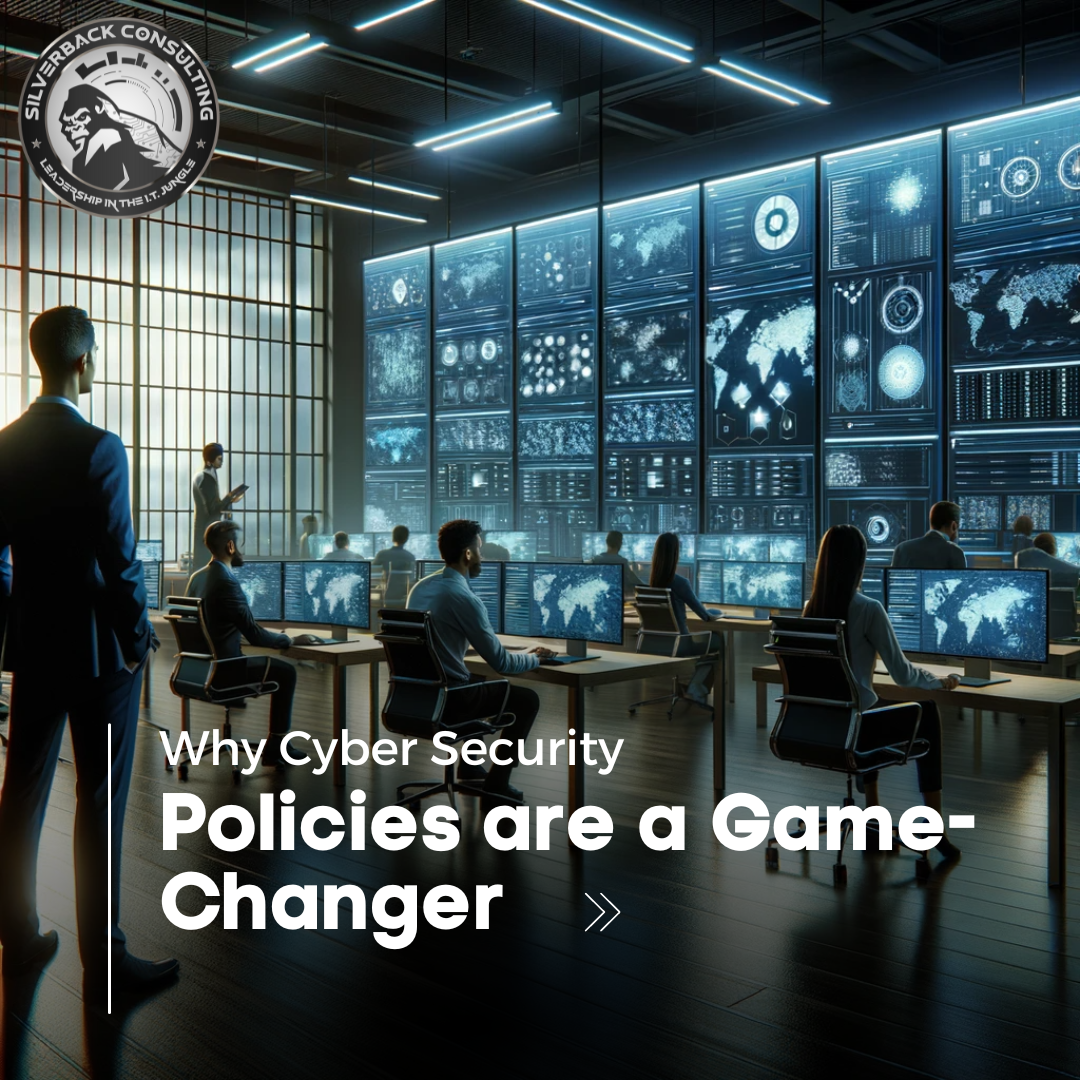Watch The Video Summary
Introduction
Have you ever paused to consider the immense impact of your online activities? From social media interactions to handling sensitive financial transactions, our digital existence is intertwined with various aspects of our daily lives. But amidst this digital revolution, a critical question arises: How secure is our online presence?
This concern brings us to the forefront of an essential aspect of our digital world – cyber security policies. These policies act as the unseen guardians of our online realm, playing a pivotal role in safeguarding our digital interactions.
In this article, we’ll explore why these policies aren’t just important, but are indeed game-changers in our increasingly connected world.
The Rise of the Digital Age

The Digital Revolution: Just like the Industrial Revolution reshaped the world centuries ago, the Digital Revolution is the defining transformation of our time. We are more interconnected now than at any previous time.
With the advent of the internet, smartphones, and cloud technology, the way we work, play, and communicate has undergone a radical shift. But with this increased connectivity comes greater risk.
The digital world is teeming with cyber threats that range from identity theft to sophisticated cyber-attacks on national infrastructure. This evolution makes cyber security policies not just a suggestion, but a fundamental necessity for safeguarding our digital existence.
Understanding Cyber Security Policies
What Are They, Really?: Cyber security policies are the rulebook for safely navigating the digital world. They are comprehensive guidelines designed to protect individuals, organizations, and governments from cyber threats.
These policies encompass a wide range of measures, including securing data, managing network security, and establishing protocols for responding to cyber incidents.
They are the blueprint for creating a secure digital environment, ensuring that our online activities are safe from malicious actors.
The Impact on Businesses
A Business Lifeline: In the business world, cyber security policies are akin to a safety net in a high-wire act. They play a crucial role in protecting sensitive corporate data, maintaining customer trust, and ensuring business continuity.
A single data breach can not only lead to financial losses but also damage a company’s reputation irreparably.
Robust cyber security policies help businesses to mitigate these risks, maintain regulatory compliance, and foster a culture of security awareness among employees.
Protecting Personal Information
Your Data, Your Rights: In today’s digital age, personal information is akin to valuable currency. Cyber security policies act as the protective barrier safeguarding this personal data.
These policies ensure the confidentiality, integrity, and availability of our personal information, allowing us to control how our data is collected, used, and shared. They help in protecting us from identity theft, financial fraud, and other forms of cybercrimes that prey on personal information.
National Security and Cyber Policies
A Matter of National Importance: The importance of cyber security policies extends beyond individual or business concerns, reaching the realm of national security.
In an era where digital warfare can have as much impact as conventional warfare, a nation’s cyber defense capabilities are crucial.
National cyber security policies are essential in defending against cyber-attacks that can disrupt critical infrastructure, steal sensitive government data, and manipulate public opinion.
They form the cornerstone of a nation’s defense strategy in the digital age, ensuring the security and resilience of national infrastructure and services.
The Role of Education in Cyber Security
Knowledge is Power: Education plays a vital role in the realm of cyber security. Just as one would not venture onto the road without understanding the rules, navigating the digital landscape requires a fundamental understanding of cyber security principles.
Cyber security policies often include educational components aimed at raising awareness among individuals and organizations.
By educating people about the risks and best practices in the digital space, these policies empower them to be proactive in protecting themselves against cyber threats.
Future-Proofing with Policies
The Crystal Ball of Cyber Security: Effective cyber security policies are not only about addressing current threats but also about anticipating future challenges. They are akin to building a robust dam before the floodwaters rise – a proactive strategy rather than a reactive one.
These policies evolve continuously, adapting to the ever-changing landscape of cyber threats. By staying ahead of potential vulnerabilities and emerging threats, cyber security policies help in future-proofing our digital world.
Challenges in Implementing Policies
No Walk in the Park: Implementing effective cyber security policies is a complex and challenging task. It involves a delicate balance between ensuring robust security and maintaining user-friendliness.
Moreover, it requires technical expertise, continuous monitoring, and updating of security measures to stay ahead of cybercriminals.
Organizations often face challenges in allocating sufficient resources, training employees, and keeping up with the rapidly evolving nature of cyber threats.
The Global Approach to Cyber Security
A United Front: Cyber threats know no borders, making a global approach to cyber security essential.
International cooperation and coordination are crucial in developing and implementing effective cyber security policies. This global approach helps in sharing best practices, resources, and intelligence, creating a unified defense against cyber threats. It fosters a safer digital environment for all, transcending national boundaries.
The Cost of Ignorance
A Price Too High to Pay: The consequences of ignoring cyber security policies can be catastrophic.
Businesses and individuals can face significant financial losses, legal liabilities, and severe damage to their reputation. For governments, the stakes are even higher, with national security and public safety at risk.
The cost of ignorance in the digital age is simply too high, underscoring the critical need for robust cyber security measures.
Navigating Privacy and Freedom
A Delicate Balance: While the implementation of cyber security policies is crucial for safeguarding our digital lives, it is equally important to balance these measures with respect for privacy and personal freedoms.
This delicate balance involves ensuring that security measures do not infringe on individual rights and freedoms. Policies must be designed in a way that respects privacy while providing adequate protection against cyber threats.
The Role of AI in Cyber Security
The New Frontier: Artificial Intelligence (AI) is rapidly transforming the landscape of cyber security. AI technologies are being employed to predict and prevent cyber-attacks, detect anomalies, and automate response mechanisms.
The integration of AI in cyber security policies represents a new frontier in the battle against cyber threats. However, it also brings new challenges, including ethical considerations and the need for oversight to prevent misuse.
Staying Ahead of Cyber Criminals
The Constant Battle: The world of cyber security is a constantly evolving battlefield. Cyber criminals are continually finding new ways to exploit vulnerabilities, necessitating a dynamic and adaptive approach to cyber security policies.
Staying ahead requires continuous vigilance, innovation, and collaboration across sectors and borders.
Conclusion: The Way Forward

In the ever-evolving landscape of the digital age, the critical role of cyber security policies stands as a beacon of defense. These policies are not just frameworks; they are the lifeblood for security teams working tirelessly to shield our digital identities and private networks from a plethora of cybersecurity threats.
As we navigate this terrain, the resilience of our digital infrastructure hinges on robust cybersecurity strategies and effective security controls.
These policies are instrumental in guiding incident response teams, enabling them to swiftly and efficiently counteract potential threats. They are the architects of a secure environment where private data remains protected, and national security is upheld.
As we collectively advance in this era, our commitment to refining and enhancing these strategies is paramount. It’s a journey that demands constant vigilance and adaptation.
By wholeheartedly embracing and continuously evolving these cybersecurity policies, we empower ourselves to stay one step ahead of cyber threats. It’s a collaborative effort, where each update, each refinement in our approach fortifies our collective security.
Together, with a shared vision and relentless dedication, we can and will forge a more secure and trustworthy digital world for all.
FAQS
What are cyber security policies?
Cyber security policies are guidelines and practices designed to protect individuals, organizations, and nations from cyber threats. They encompass a range of measures, from securing data to managing network security.
Why are cyber security policies important for businesses?
For businesses, cyber security policies are crucial for protecting sensitive data, maintaining customer trust, and ensuring business continuity. They help mitigate risks associated with cyber-attacks and data breaches.
How do cyber security policies contribute to national security?
Cyber security policies are vital for national security as they defend against cyber-attacks that can disrupt critical infrastructure, steal sensitive government data, and manipulate public opinion.
Can cyber security policies infringe on personal privacy?
While cyber security policies are essential for protection, they must be balanced with respect for privacy and personal freedoms. It’s important to design these policies to safeguard against cyber threats while respecting individual rights.
What role does AI play in cyber security?
AI plays a significant role in cyber security by predicting and preventing cyber-attacks, detecting anomalies, and automating response mechanisms. Its integration into cyber security policies represents a new frontier in cyber defense.
Protect Your Business with the Right Cybersecurity Policies
Don’t leave your company’s data at risk. Our experts create and implement tailored cybersecurity policies that keep your business compliant, secure, and prepared for evolving threats. Call us today at (719) 452-2205 or send us a message below to get started.
Silverback Consulting
303 South Santa Fe Ave
Pueblo, CO 81003
719-452-2205
support@silverbackconsulting.us
“Leadership in the I.T. Jungle”




